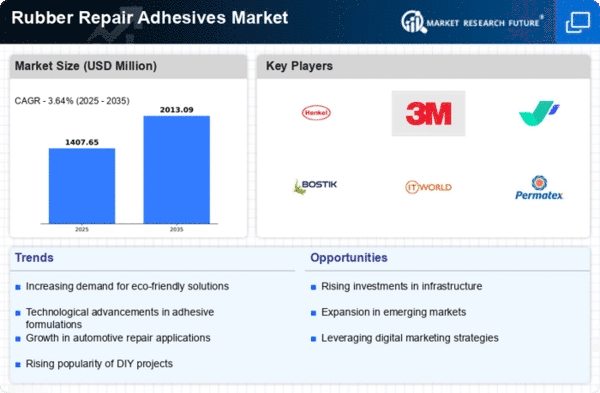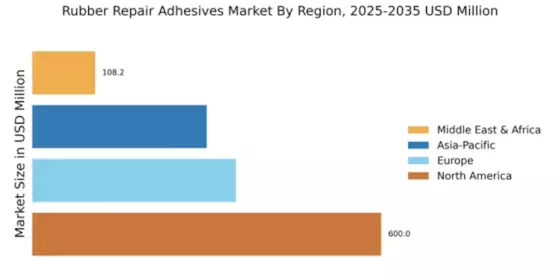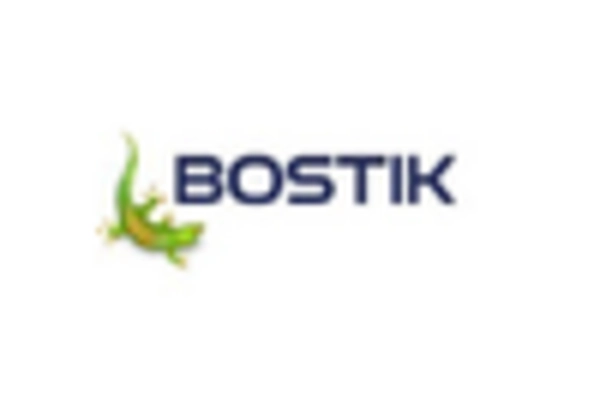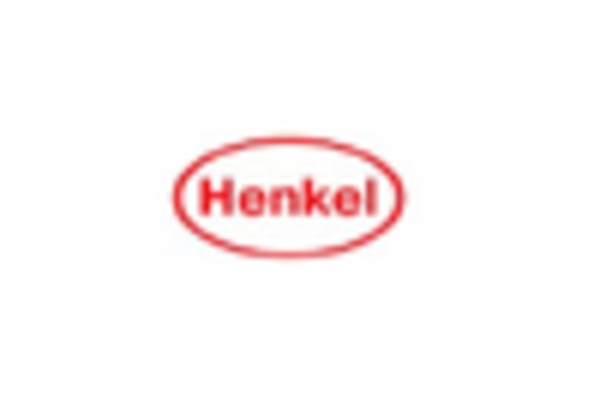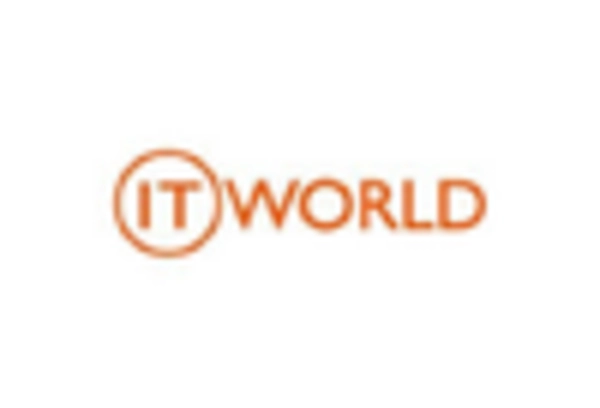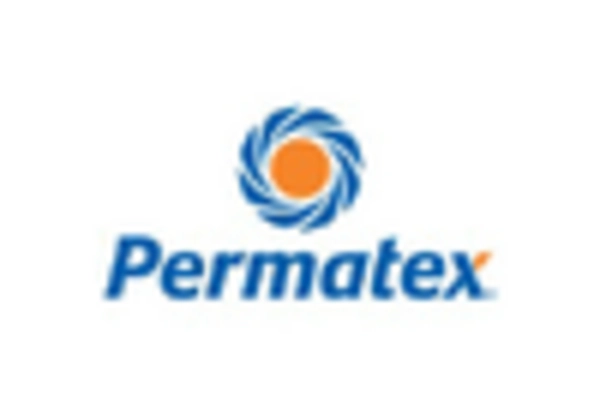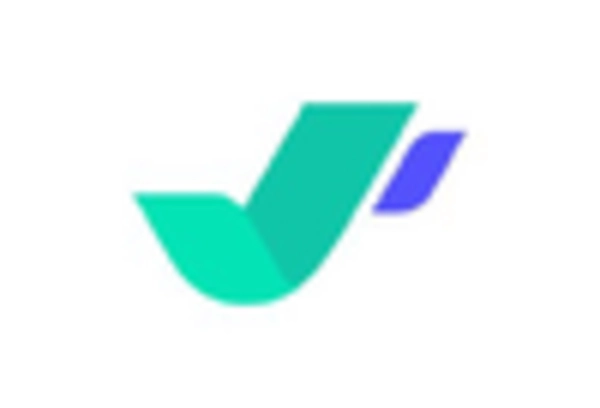Market Growth Projections
The Global Rubber Repair Adhesives Market Industry is poised for substantial growth in the coming years. With a market valuation of 1.36 USD Billion in 2024, projections indicate an increase to 2.01 USD Billion by 2035. This growth trajectory suggests a compound annual growth rate (CAGR) of 3.62% from 2025 to 2035. Such figures reflect the increasing adoption of rubber repair adhesives across various sectors, including automotive, construction, and consumer goods. The anticipated growth underscores the importance of innovation and sustainability in driving market dynamics, as stakeholders seek to capitalize on emerging opportunities.
Expansion of Automotive Sector
The automotive industry plays a crucial role in the Global Rubber Repair Adhesives Market Industry, as these adhesives are essential for various applications, including tire repair and bonding components. With the automotive sector projected to grow significantly, the demand for reliable and efficient repair adhesives is likely to increase. In 2024, the market is valued at 1.36 USD Billion, reflecting the automotive industry's recovery and expansion. As electric vehicles gain traction, the need for specialized adhesives that can withstand higher temperatures and provide durability will further drive market growth, potentially reaching 2.01 USD Billion by 2035.
Rising Demand for Eco-Friendly Solutions
The Global Rubber Repair Adhesives Market Industry is witnessing a notable shift towards eco-friendly adhesive solutions. As environmental regulations tighten and consumer preferences evolve, manufacturers are increasingly focusing on sustainable materials. This trend is driven by the need to reduce carbon footprints and promote recycling. For instance, companies are developing adhesives that utilize bio-based components, which not only meet regulatory standards but also appeal to environmentally conscious consumers. The growing awareness of sustainability is expected to propel the market, as eco-friendly products are projected to capture a larger share of the market by 2035.
Growth in Construction and Infrastructure Projects
The construction and infrastructure sectors are pivotal to the Global Rubber Repair Adhesives Market Industry, as these adhesives are extensively used for repairing and maintaining rubber components in various applications. With global investments in infrastructure projected to rise, the demand for reliable repair solutions is likely to increase. The ongoing urbanization and the need for sustainable building practices further contribute to this trend. As construction projects expand, the market for rubber repair adhesives is anticipated to grow, supported by the increasing need for durable and efficient repair solutions in both residential and commercial sectors.
Technological Advancements in Adhesive Formulations
Innovations in adhesive formulations are significantly influencing the Global Rubber Repair Adhesives Market Industry. Advances in chemistry and material science have led to the development of high-performance adhesives that offer superior bonding strength, flexibility, and resistance to environmental factors. These technological improvements enable manufacturers to create products that cater to diverse applications, from industrial repairs to consumer goods. The introduction of smart adhesives, which can adapt to changing conditions, is also gaining traction. As these innovations continue to emerge, they are expected to enhance market competitiveness and drive growth, particularly in specialized sectors.
Increased Focus on Product Durability and Performance
The emphasis on product durability and performance is a driving force in the Global Rubber Repair Adhesives Market Industry. Consumers and industries alike are seeking adhesives that not only provide immediate bonding but also ensure long-lasting performance under various conditions. This demand for high-quality products is pushing manufacturers to invest in research and development to enhance adhesive properties. As a result, the market is likely to see a rise in premium products that offer superior performance. This trend aligns with the projected CAGR of 3.62% for the period from 2025 to 2035, indicating a robust growth trajectory.


